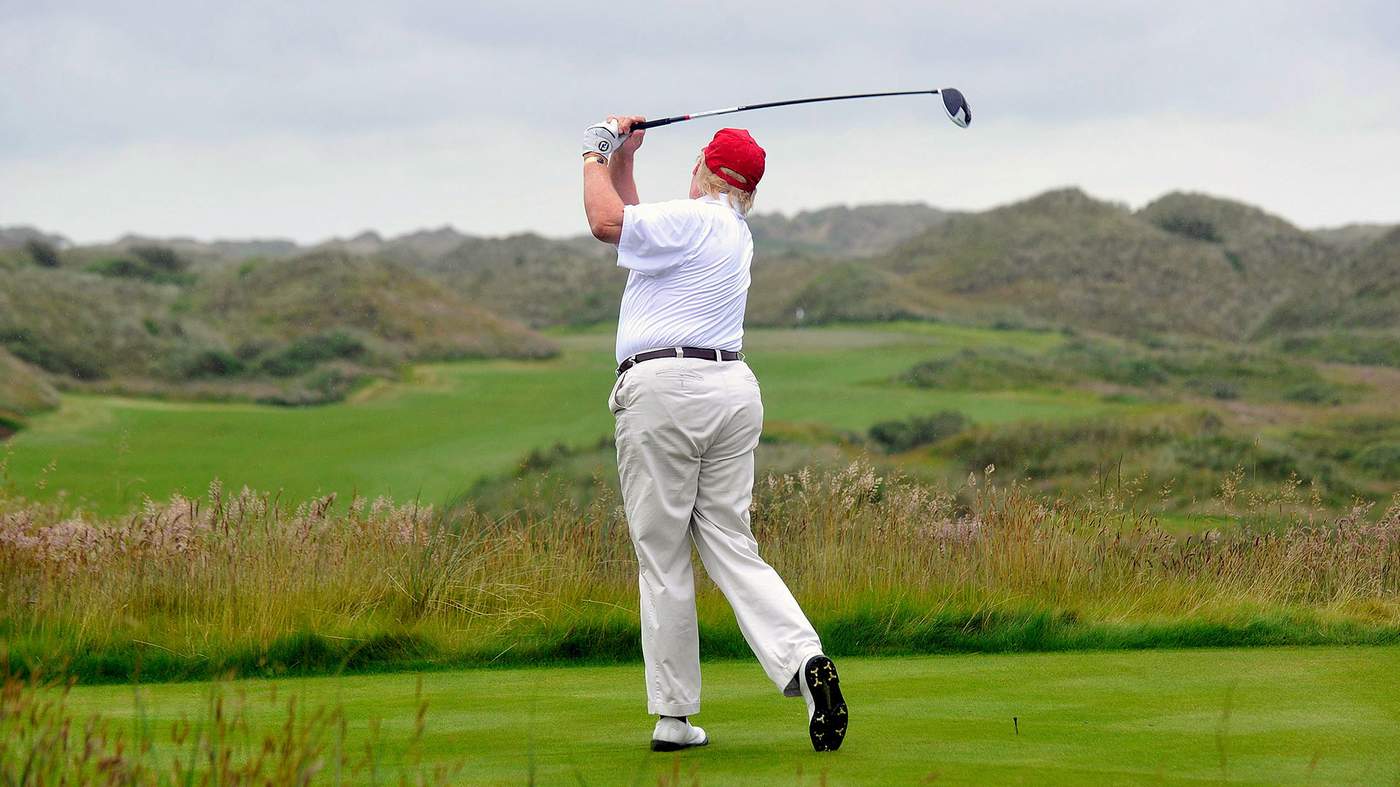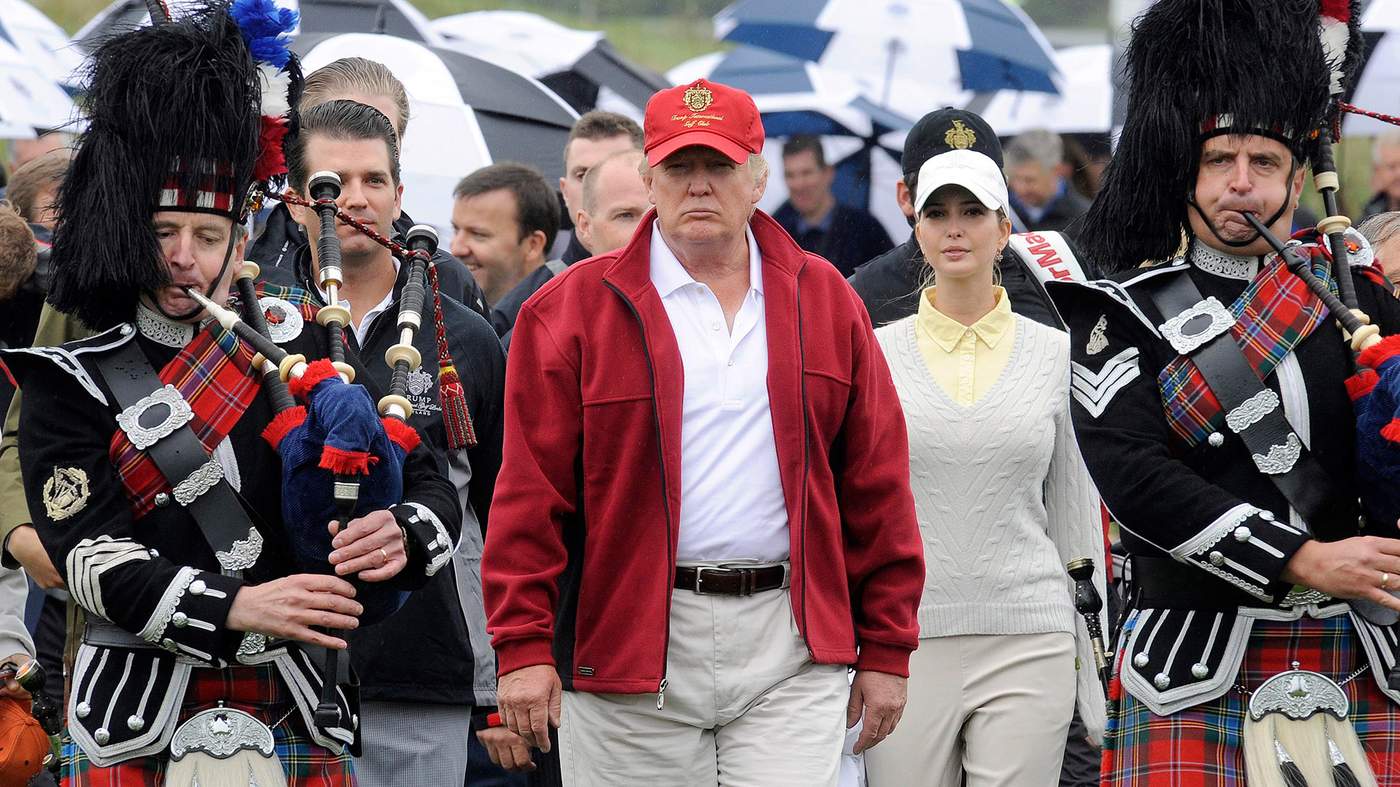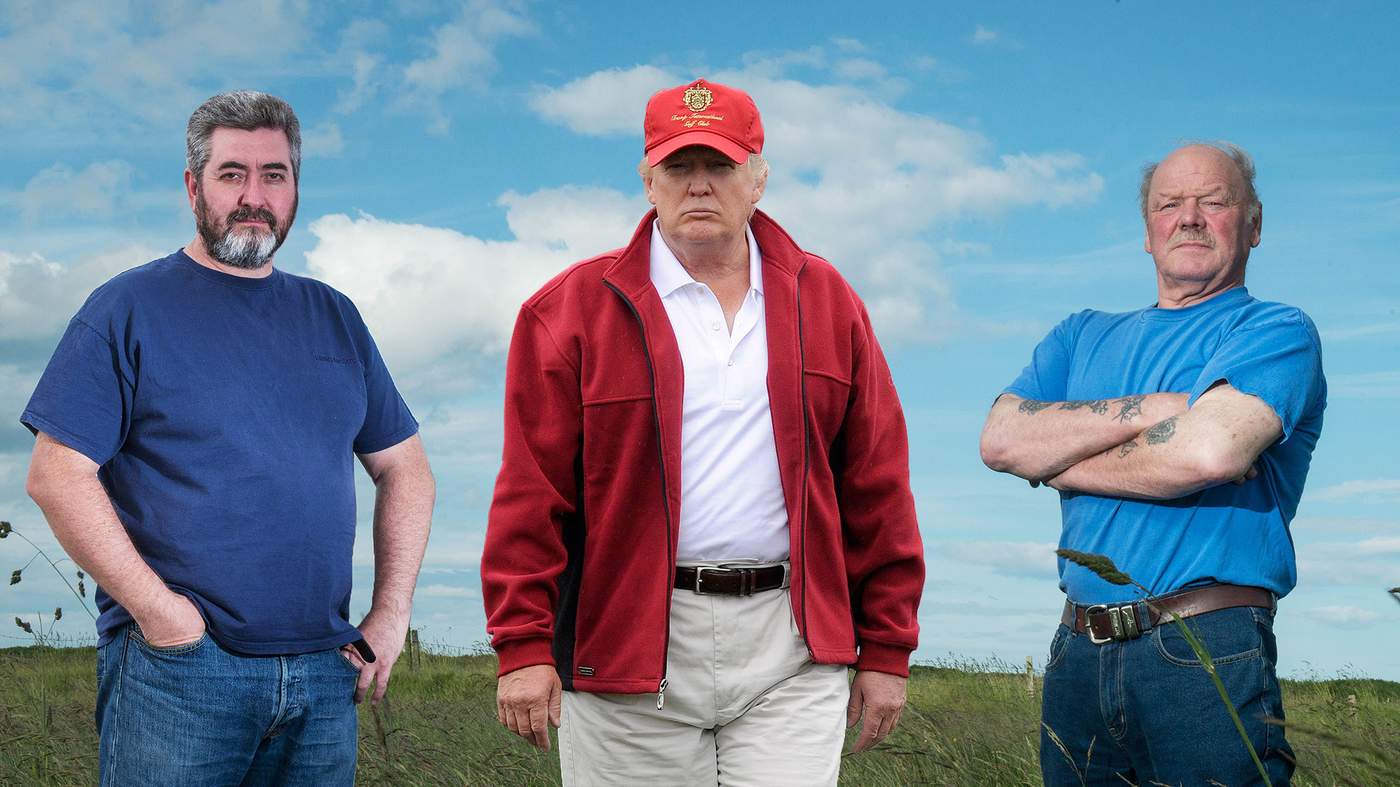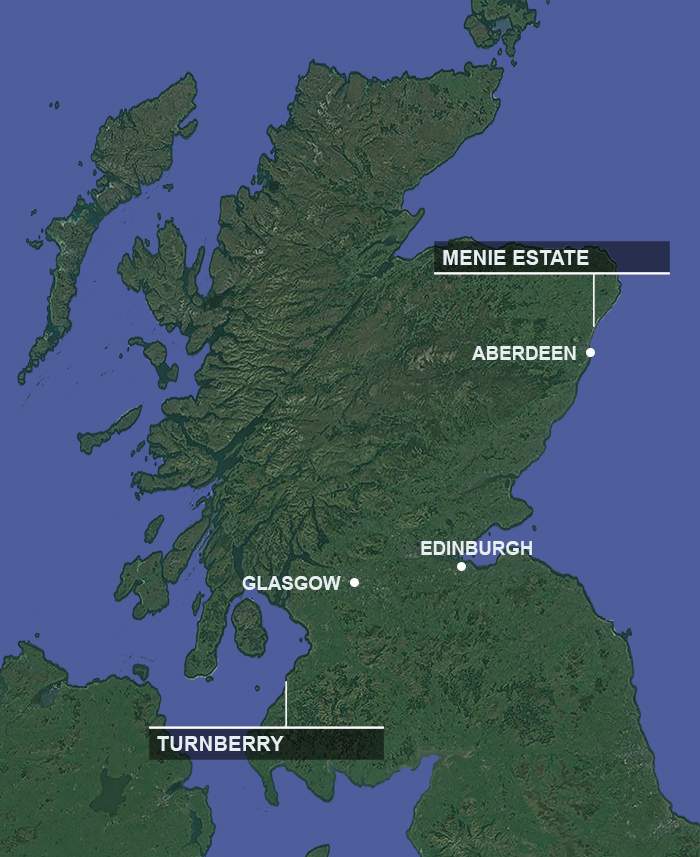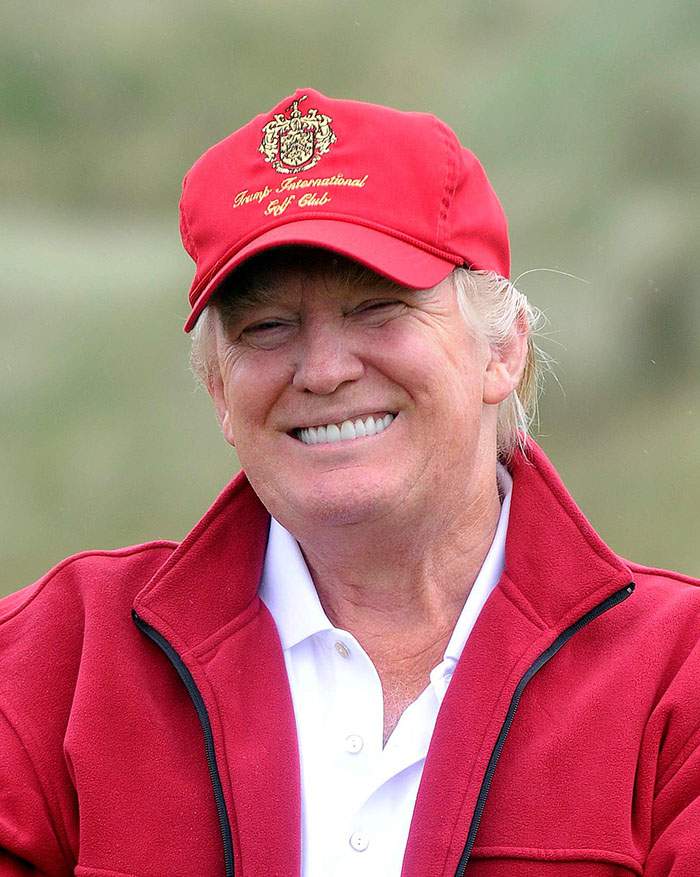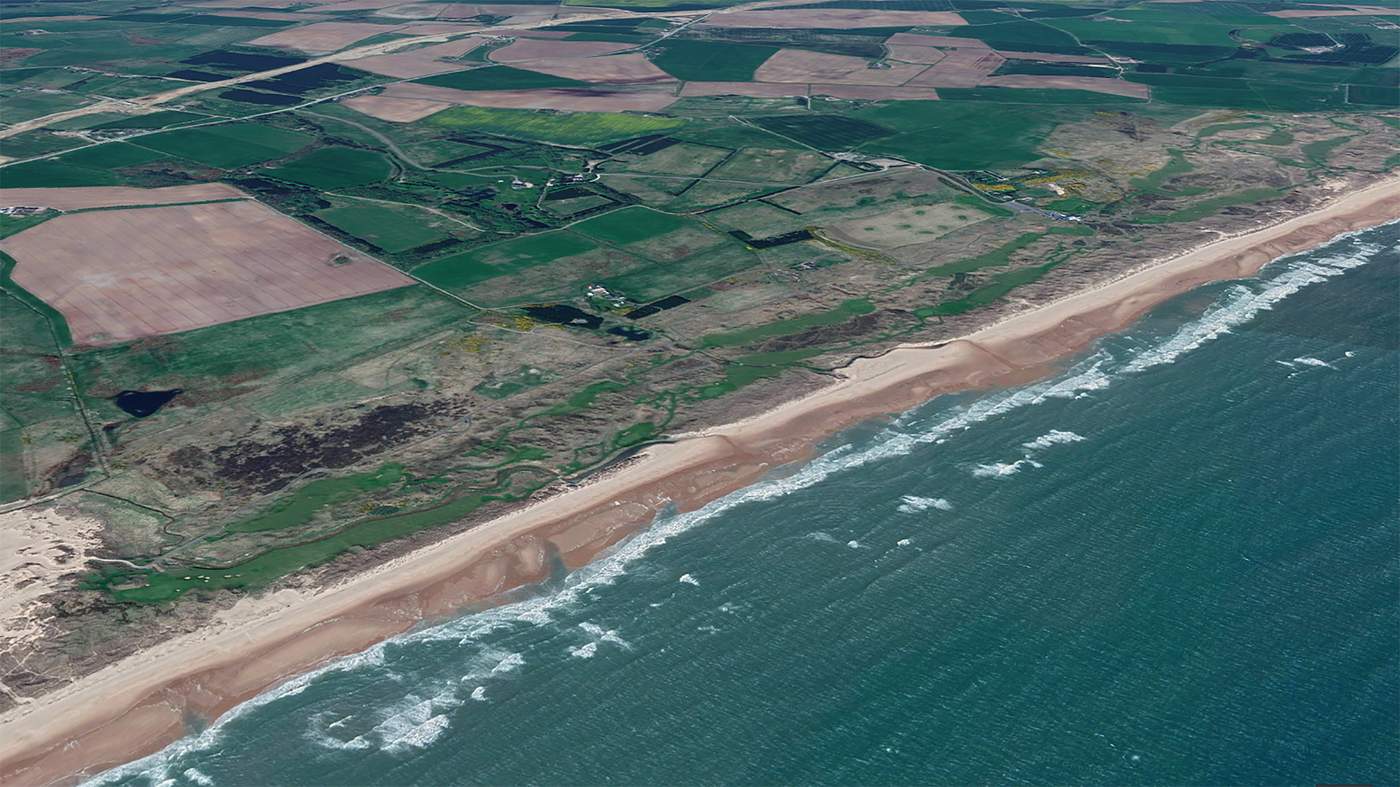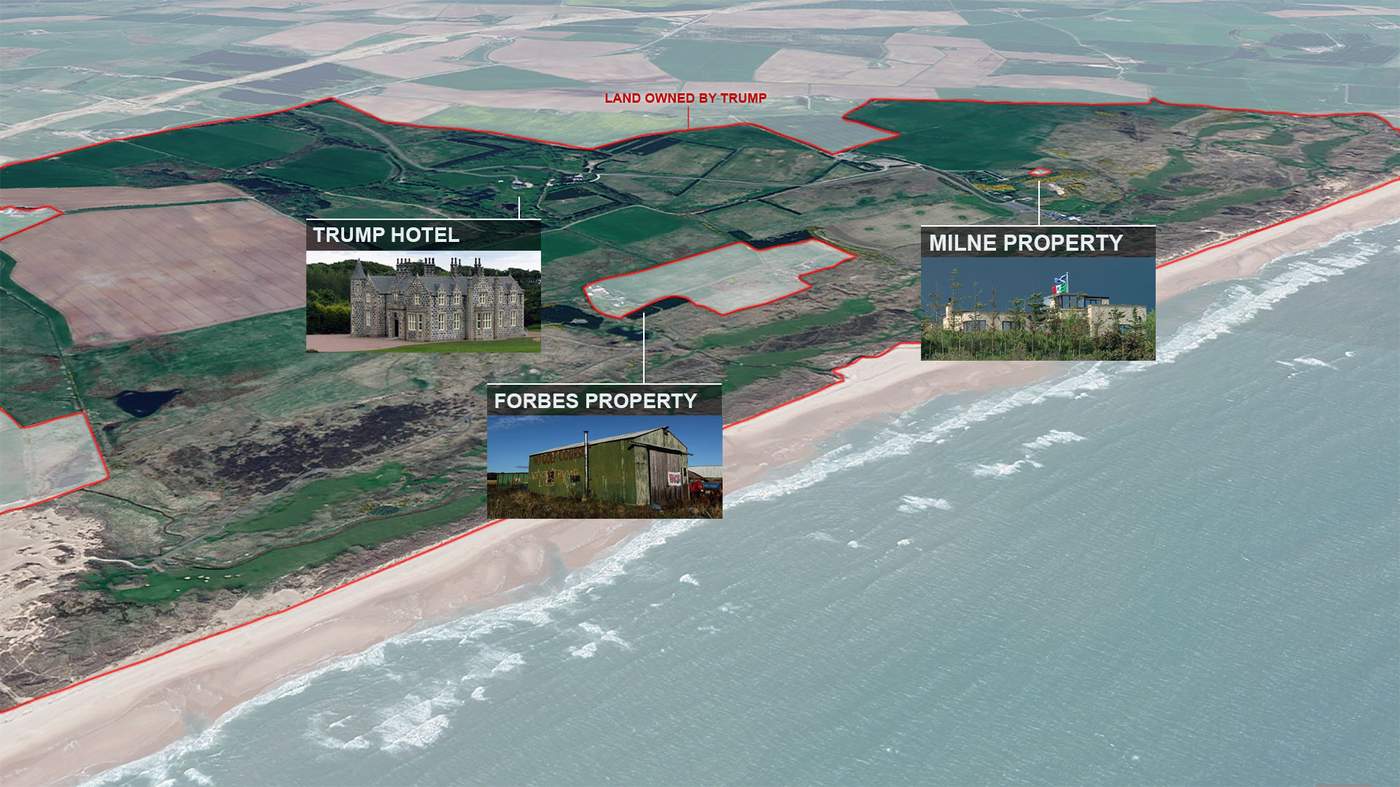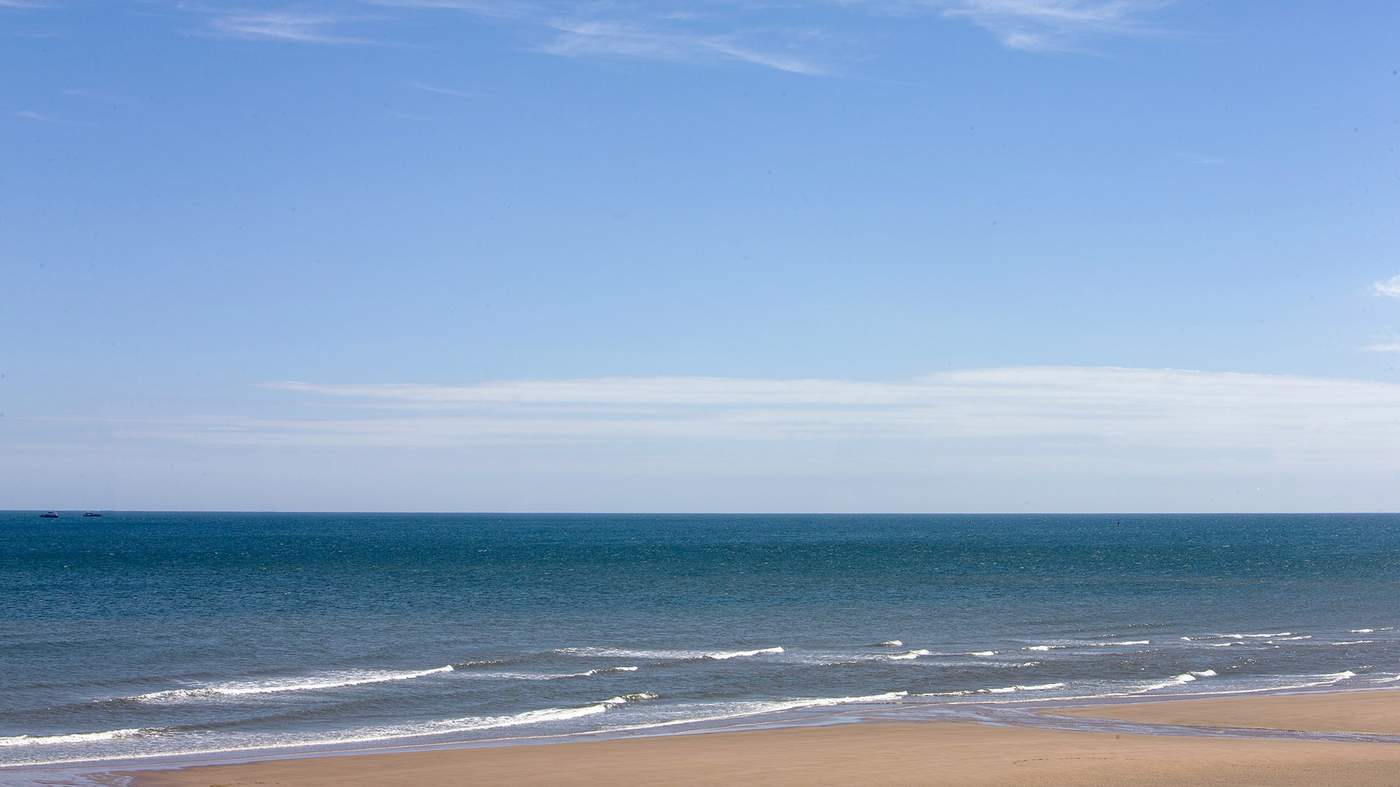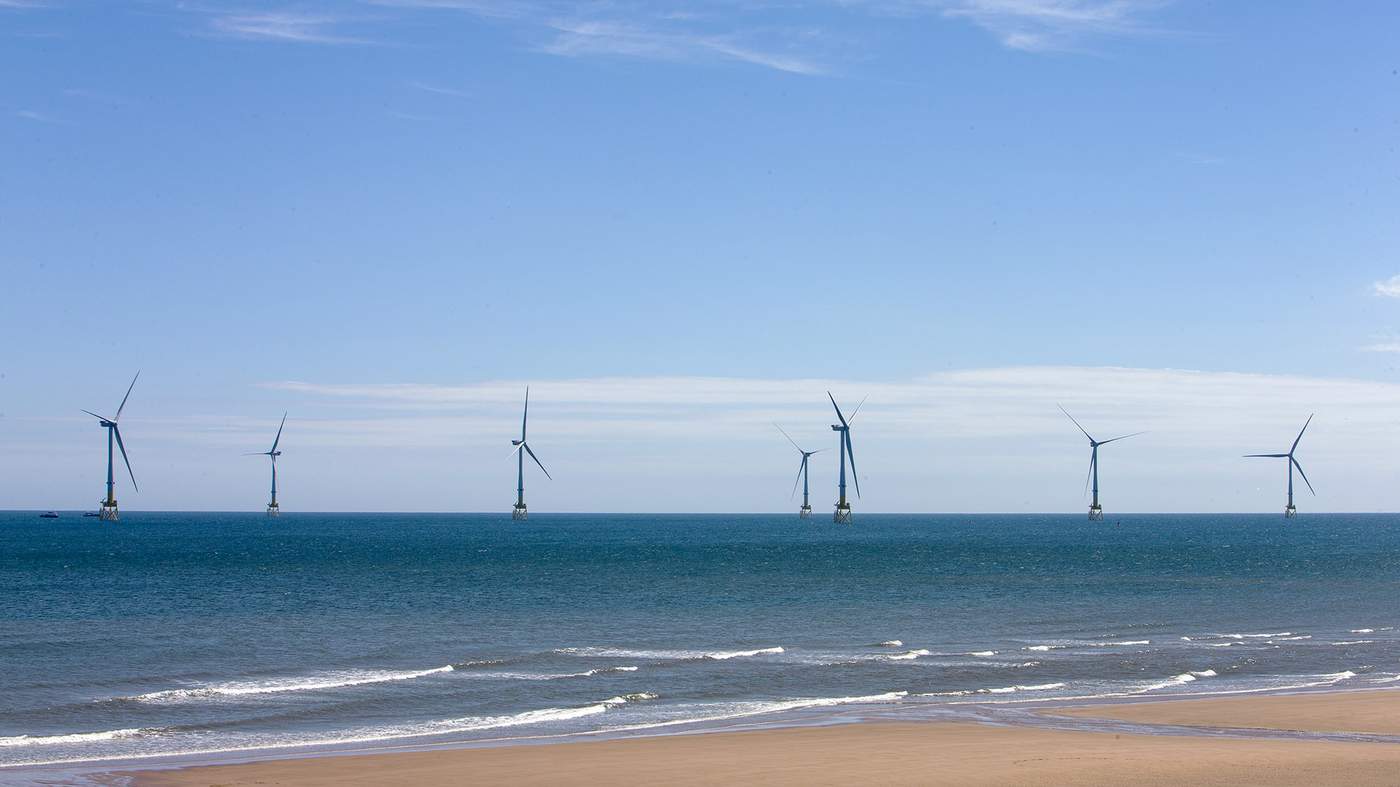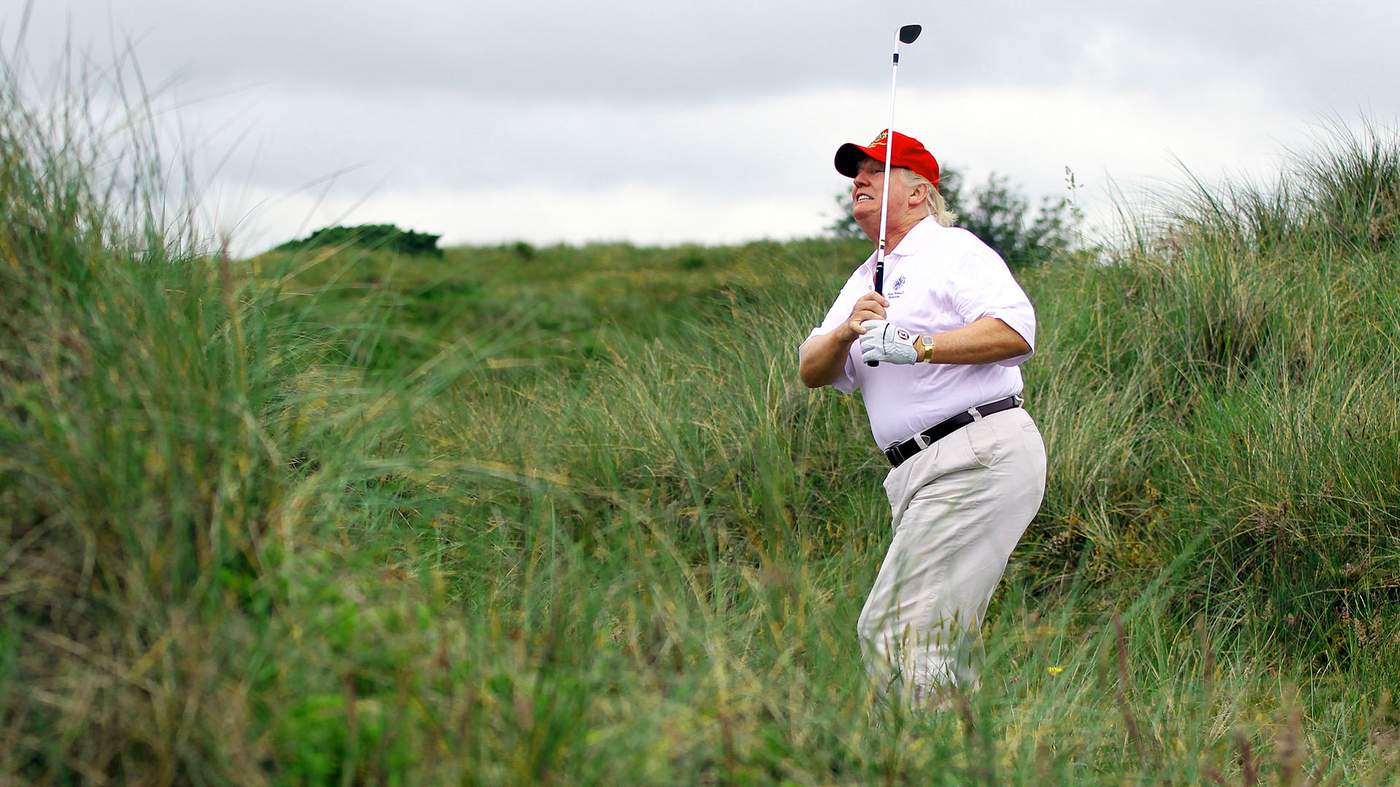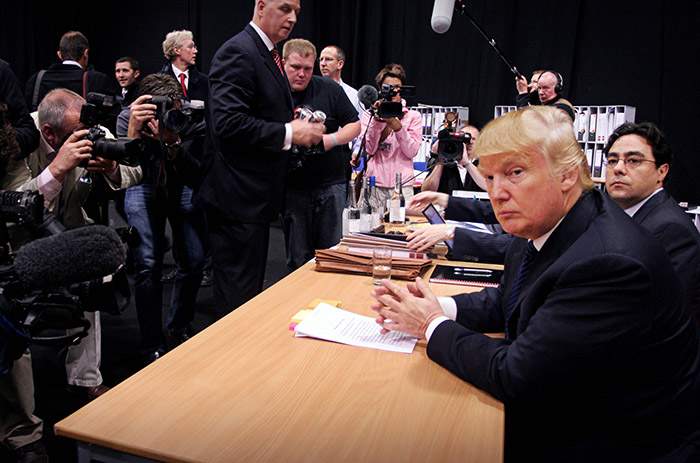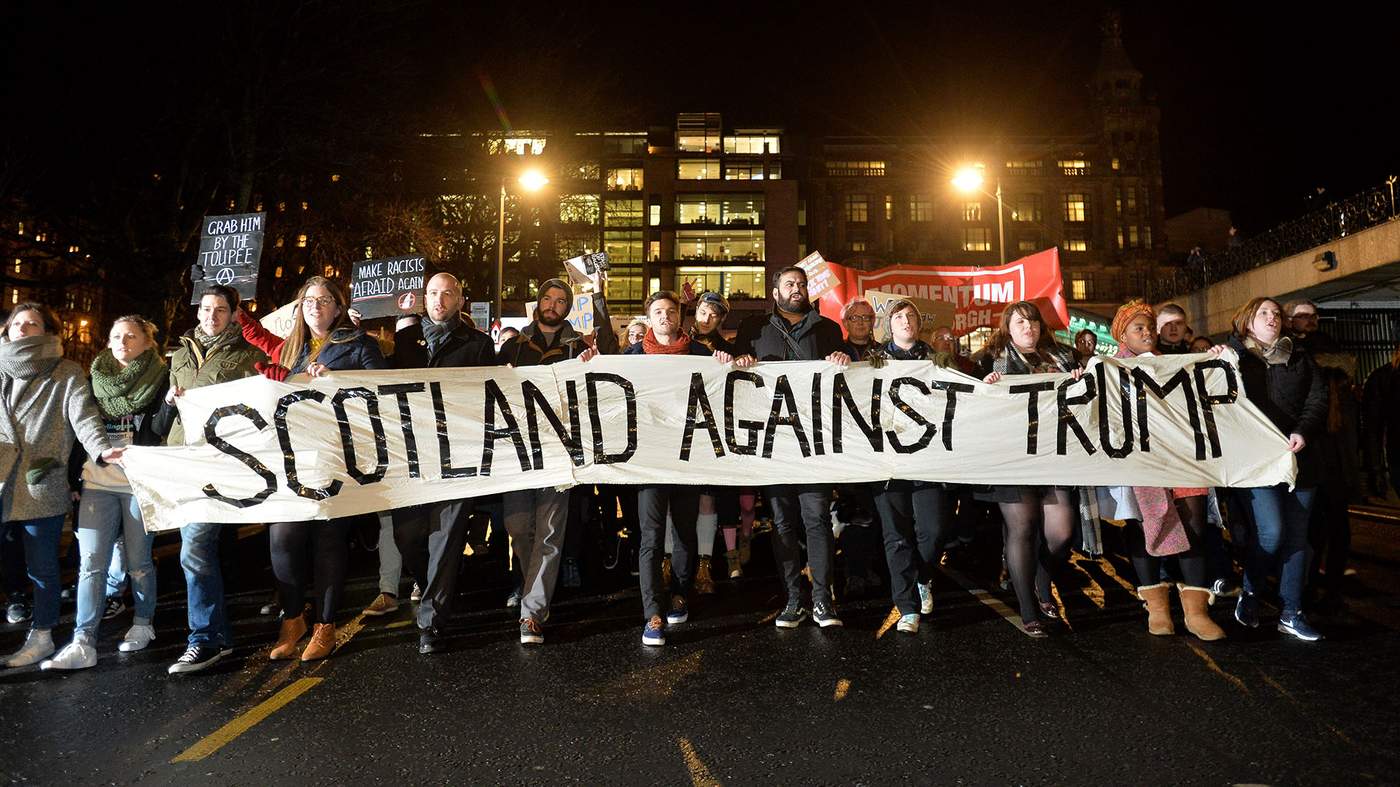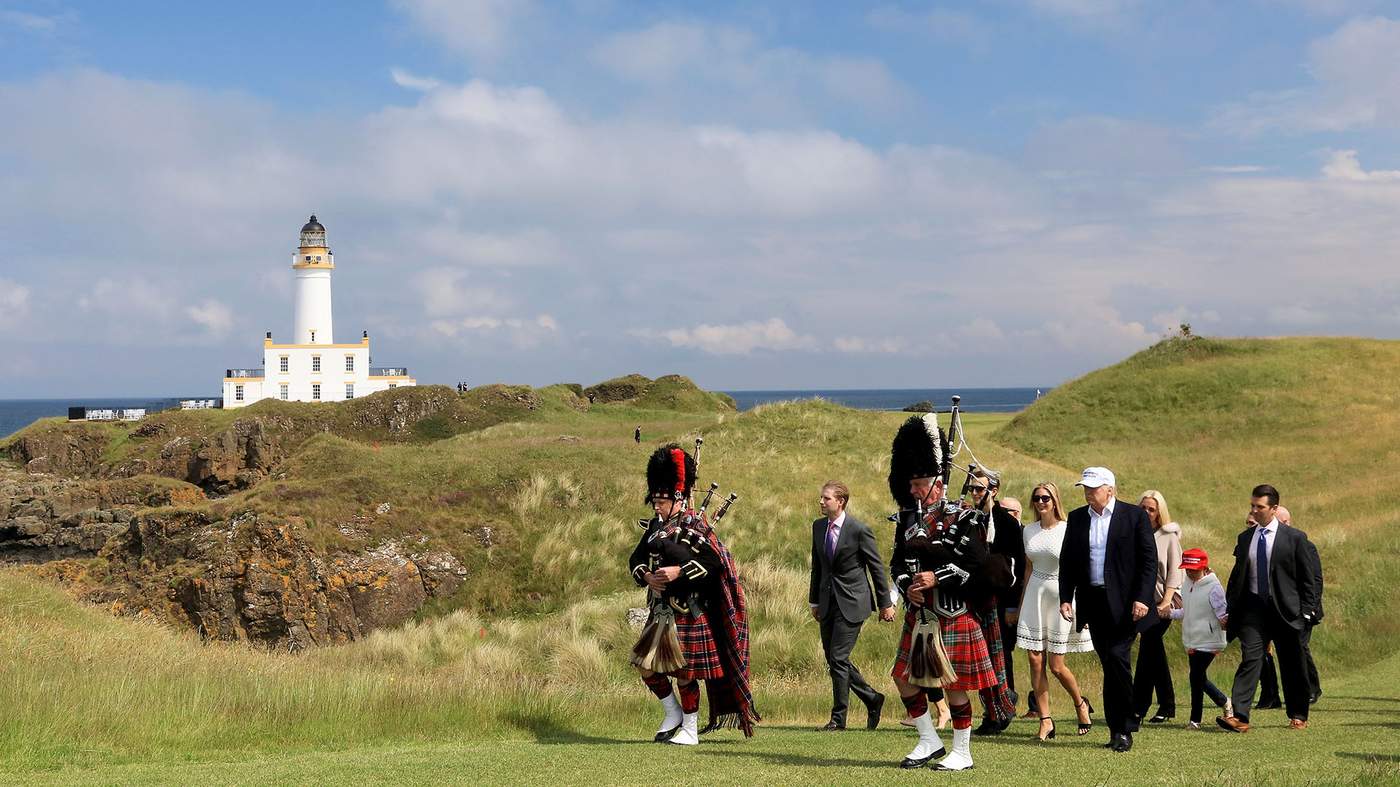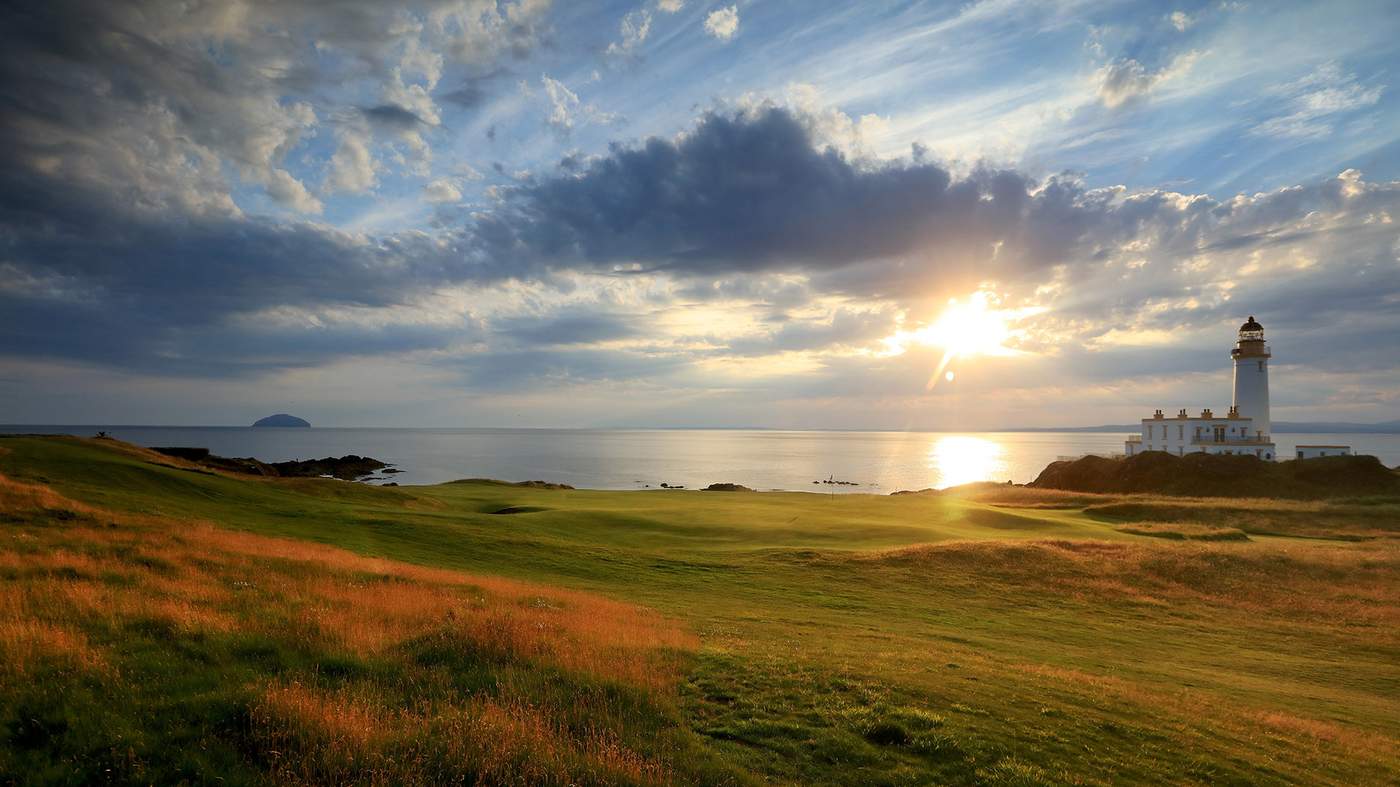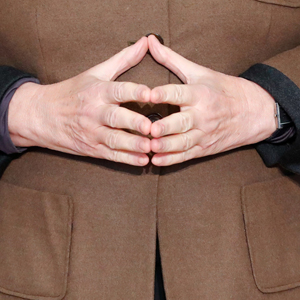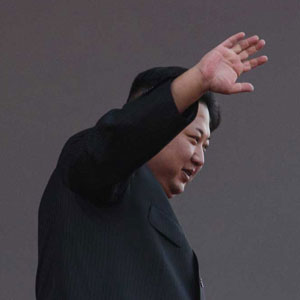Donald Trump came to Scotland to build the world’s greatest golf course on spectacular sand dunes on the Aberdeenshire coast.
He fought and won the planning rights to do so - bulldozing his way through environmental objections with the bold promise of a £1bn investment and thousands of jobs.
In pursuit of his vision, he clashed with politicians, nature lovers and even his own neighbours. In Scotland they’ve been hitting back at Mr Trump for more than a decade.
Mr Trump seemed to feel the same way about other dwellings overlooking his property. He famously accused local farmer and salmon fisherman, Michael Forbes of living in a “pig-like atmosphere”.
All refused to leave their homes. The Trump Organization raised the possibility of using compulsory purchase powers to force them out but eventually dropped the idea.
Mr Forbes painted anti-Trump slogans on his green corrugated-iron shed and became a hero to those opposed to the billionaire’s development plans. He won a national award for his defiant spirit, prompting Mr Trump to threaten to withdraw business from the whisky company that sponsored it.
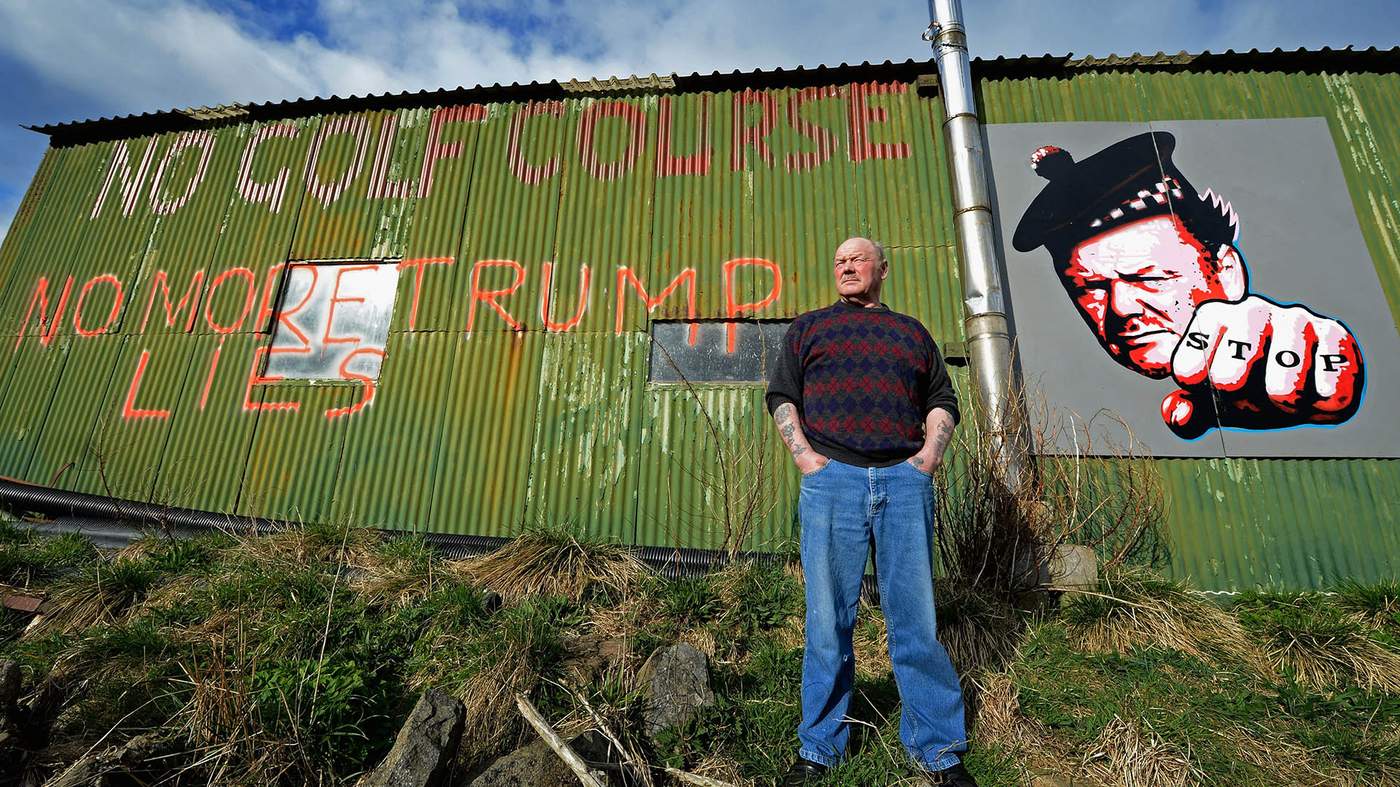
Mr Forbes has rusting machinery, fishing gear and any amount of farmyard jumble lying in the grounds around his house and outbuildings.
The appearance contrasts sharply with the carefully manicured fairways of Trump International Golf Links. But Mr Forbes insists he was not hurt by Mr Trump’s “pigsty” jibe. He says he and his mother - who lives there too - laughed it off because they regard Mr Trump as “a clown”.
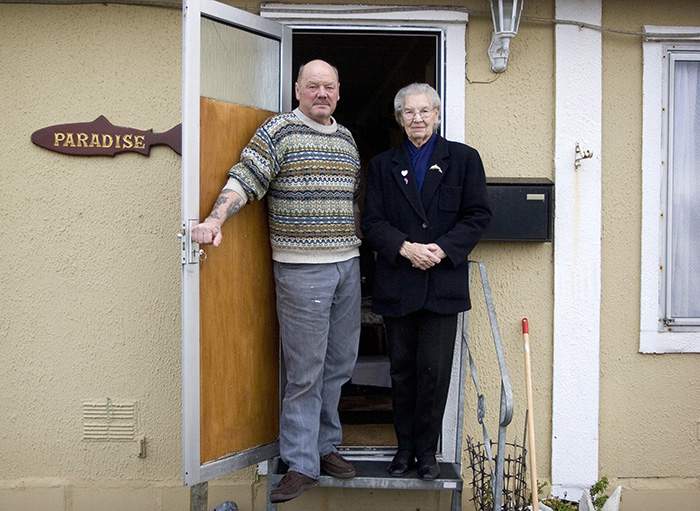
Michael Forbes and his mother think Trump is “a clown”
There was further dispute with the Milnes when the Trump construction team mounded earth around their property. It was later removed.
We have a great relationship with the vast majority of our neighbours”
And then there was the tree planting. The Milnes’ views up and down the coast used to be completely uninterrupted - but one day that changed.
David was at work when his phone rang. It was Moira. “They’ve got a digger at the front of the house and they are planting trees,” she told him. It appeared to be an attempt to screen off the property from view by golfers.
Asked to explain, Sarah Malone - who is in charge of Trump's Scottish business interests - said: “We have the right to plant trees and you know it’s our land. Why wouldn’t we plant trees?”
She denied there was any attempt to bully the Milnes. “We have a great relationship with the vast majority of our neighbours,” she said.
In much of the Scottish media, Mr Trump has been portrayed as a neighbour from hell bullying the locals to get his own way. It is what he might nowadays dismiss as “fake news” that ignores the jobs, investment and visitors he has brought to the area.
The Milnes were not able to stop him developing the Menie estate but they have successfully resisted his attempts to get them out.
And Mr Trump also failed to stop some new neighbours arriving in the area.
They are electricity generating giants - the largest in Scottish waters and among the most advanced anywhere in the world.
Each of the 11 turbines that make up the Aberdeen offshore wind farm stands 191m tall. Each blade spans 80m. Together they should generate enough power for 80,000 homes.
Although they are sited more than a mile off the Aberdeenshire coast, they are strikingly obvious to anyone playing a round on Donald Trump’s golf course.
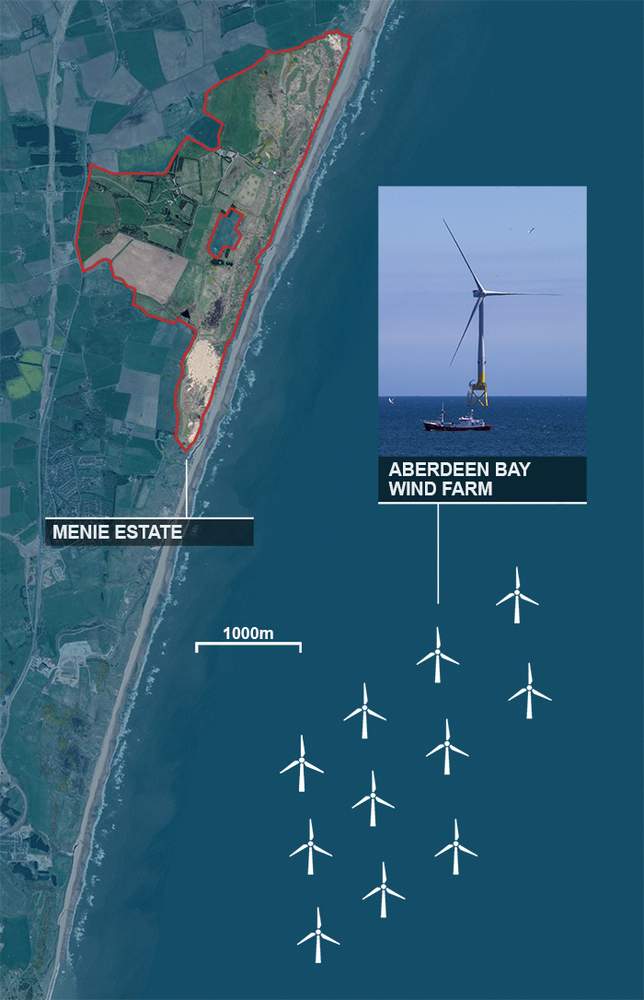
Some may find them aesthetically pleasing, relaxing even. But to Mr Trump they are an eyesore. He did everything he could to stop them being built, but failed.
Mr Trump is not a fan of wind power. He hates it with a passion. He argued that developing a wind energy industry in Scotland would ruin the environment, the tourist economy and trigger riots across the country.
“They are so unattractive, so ugly, so noisy and so dangerous that, if Scotland does this, I think Scotland will be in serious trouble,” he told the Scottish Parliament in 2012.
Appearing before a committee of MSPs, he accused two first ministers of Scotland of luring him to invest with false promises. Mr Trump had been friendly with both Labour’s Jack McConnell and his Scottish National Party successor Alex Salmond.
Both had visited the tycoon during trips to New York for the annual Tartan Day celebrations. Both were very keen to secure his investment for Scotland.
Mr Trump claimed they had privately assured him there was no way a wind farm would be allowed near his course. Both politicians strongly denied giving any such assurances.
Having made his opposition to wind farms abundantly clear, the Scottish Parliament asked Mr Trump for his evidence that they would be economically ruinous for Scotland.
He came out with a Trump classic. “I am considered a world class expert in tourism,” he replied. “So when you say ‘where is the expert and where is the evidence’ - I am the evidence!”
The Scottish Parliament was not persuaded. Neither were the courts. In 2015 the UK Supreme Court rejected his attempts to block the wind development.
Mr Trump claims the wind turbines damage the natural environment at the Menie estate. But his critics say his golf course has destroyed it.
The northern part of the course covers part of a Site of Special Scientific Interest (SSSI) regarded as one of Britain’s best examples of a mobile sand dune system.
Before construction work began in 2010 the dune system moved north at substantial speeds - up to 11m per year across an area of about 15 hectares. It was a living landscape, constantly evolving.
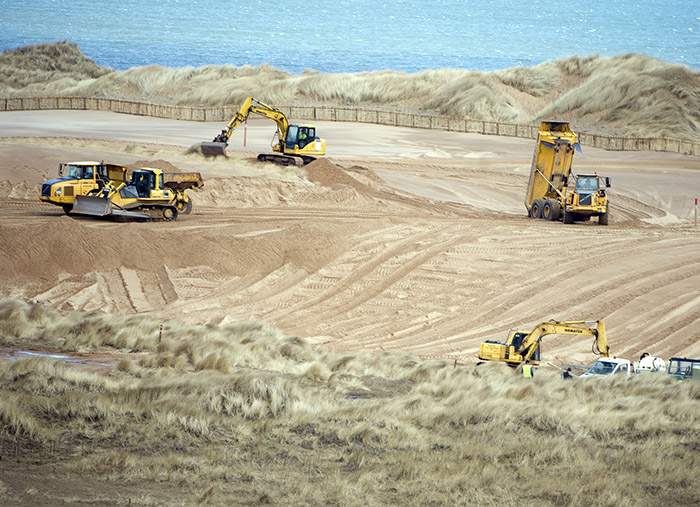
Construction vehicles on the Menie Estate in 2010
Government agency Scottish Natural Heritage has been monitoring the impact of the course on the landscape and plant life. It found habitat loss and damage to the dune system.
Dr Jim Hansom, a geomorphologist from Glasgow University, says he would be “absolutely surprised” if the sand dunes were allowed to keep their SSSI status.
“It really should be de-notified because there’s no dynamism involved in that site now and that was the original justification for its notification,” he says. “It’s been ruined from a virgin undeveloped wilderness site into something that’s relatively manicured.”
Scottish Natural Heritage, which objected to the original development, is assessing the scale of the damage to decide whether parts of the Menie site should lose SSSI protection.
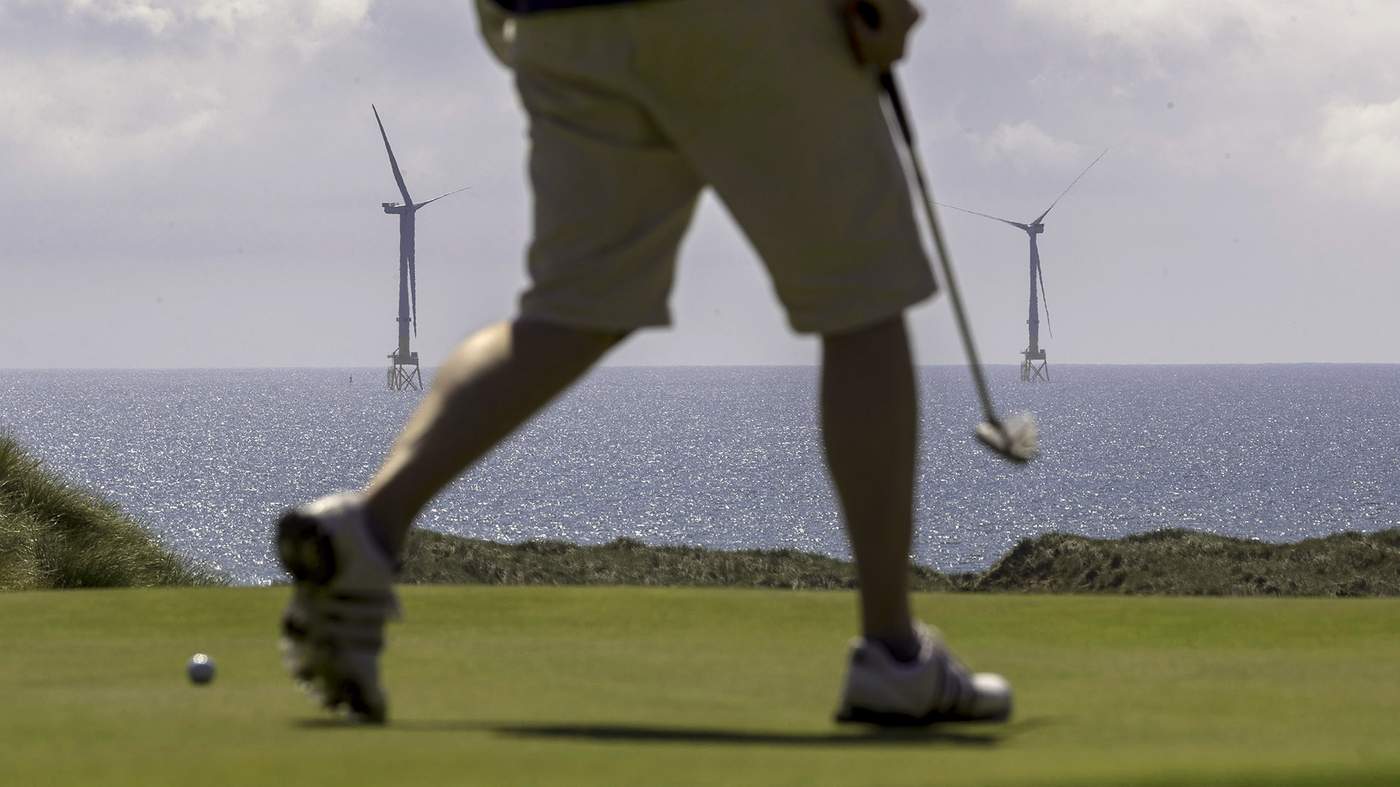
It’s been ruined from a virgin undeveloped wilderness site”
Ms Malone says the Trump Organization is relaxed about the outcome.
“I don’t think it matters to us. It may matter to other people and we’ll be comfortable with whatever the option and the decision on that is,” she says. Ms Malone insists that the Trump approach to environmental matters has been “first class”.
The deterioration of the sand dunes was predicted long before the wind farm row, and long before the first bulldozer arrived on the Menie estate. But those who gave Mr Trump the go-ahead decided it was a price worth paying for what he promised. A promise that, if not broken, is far from fulfilled.
While running for office in December 2015, Donald Trump suggested banning citizens from majority Muslim countries entering the US. There was outrage in Scotland.
Scotland’s new first minister Nicola Sturgeon removed his status as a “Global Scot” - a business ambassador who acts for Scotland on the world stage.
It was a symbolic gesture soon followed by another, as Aberdeen’s Robert Gordon University took back the honorary degree they had bestowed upon the businessman in 2010.
As the Scottish Parliament election approached in 2016, Scottish party leaders across the political spectrum became bolder in their opposition.
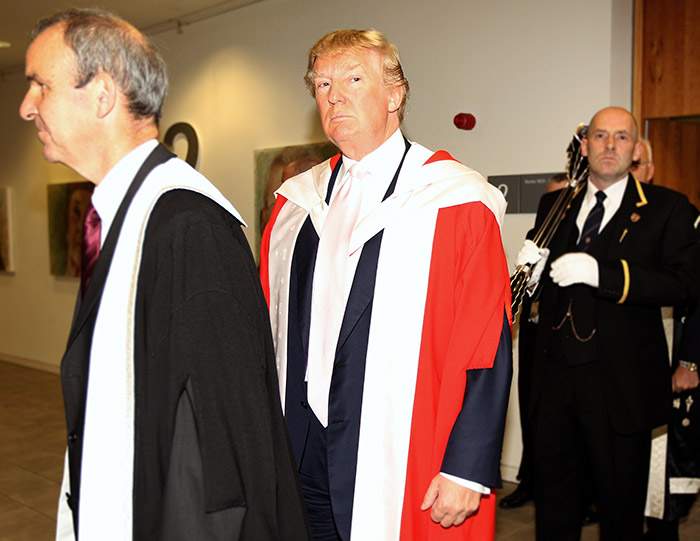
Donald Trump receiving an honorary degree from Robert Gordon University in 2010 (it was later revoked)
Labour’s Kezia Dugdale described Candidate Trump as “an arse” and travelled to the United States to campaign for Hillary Clinton. And Ruth Davidson of the Scottish Conservatives told a TV debate she had “too much faith in the people of the US to ever let that man anywhere near the White House”.
At that same debate Ms Sturgeon said “we should all rejoice” when the American people “send Donald Trump packing”. When asked how she’d handle a phone call from President Trump if he did win the election, she imagined herself saying: “I’m on the other line, sorry.”
She imagined incorrectly. A few months later she took that call. Mr Trump phoned to thank her for the letter which she wrote congratulating him on his victory. It probably wasn’t the easiest letter she’s had to write.
At the same time protesters took to the streets of Scotland’s cities, when the newly inaugurated president enacted his controversial travel ban in January 2017.
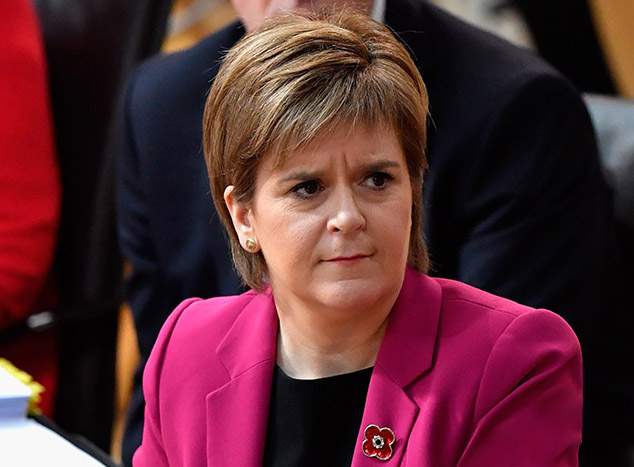
Nicola Sturgeon had not anticipated a Trump victory
Ms Sturgeon has continued to speak out against some of Mr Trump’s policies, such as the detention of child migrants separated from their parents.
On visits to the US she has prioritised business links over engagement with the Trump administration and met some of his high-profile critics, including Hillary Clinton.
The first minister has said she would be prepared to meet the president when he visits Scotland, but no plans were made for her to see him during his latest trip.
There are those who think it was a mistake for Scotland’s politicians to take sides in a foreign election against the man who now occupies the highest political office on the planet.
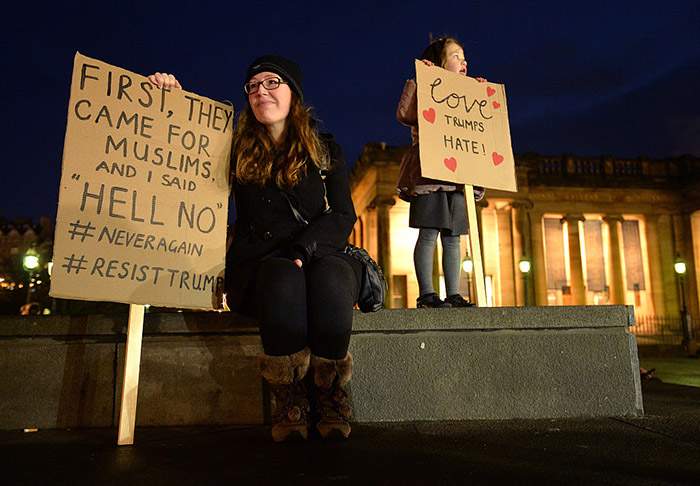
Trump’s travel ban brought protests to Edinburgh in 2017
“It was very unseemly. It’s not what you do,” says Sebastian Gorka, a former adviser to the Trump administration. He warns that there could be repercussions for Scotland.
“You’d have to ask the president but he has a very, very long memory. He doesn’t forget stuff.”
American-Scot Jack Perry takes the view that ignoring any president is not an option. Mr Perry was head of the development agency Scottish Enterprise when Mr Trump first mooted building his golf course.
“You can dislike the man, you can dislike his politics, you can dislike his public pronouncements,” he says. “But there still has to be some respect for the office. I don’t think you have any choice but to deal with him.”
It is especially difficult to ignore a US president who now owns two major golf resorts in your country.
Donald Trump never made any secret of his ambition to bring major golf tournaments to Scotland. “I think we’ll have the Ryder Cup,” he said in 2013. “I think we’ll have the Open. I think we will have many, many great tournaments over the years.”
A year later he added a second Scottish property to his golf portfolio - the famous Turnberry resort in Ayrshire. His investment here was far less controversial than his dealings in Aberdeenshire. He restored a fading classic to grandeur - adding a ballroom, chandeliers and a touch of Trump bling.
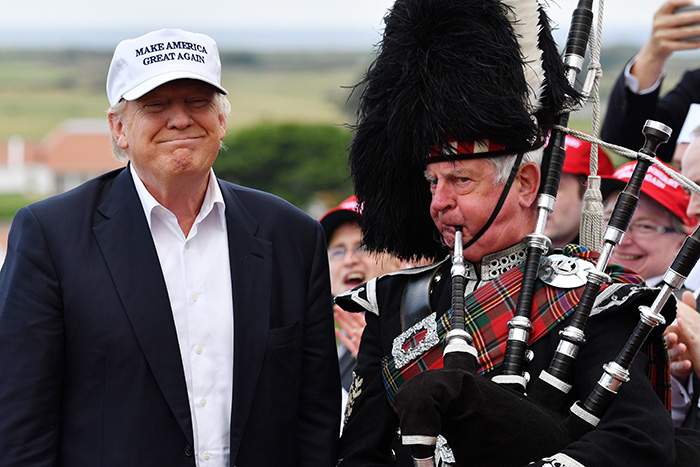
Improvements to the courses at Trump Turnberry have been well received. It was described as “a jewel in the crown of Ayrshire” by Val Russell from the local chamber of commerce. She said dealings with the Trump Organization had been nothing but positive.
But neither of Mr Trump’s Scottish venues has yet been awarded the right to host a major yet. So far, that ambition is unfulfilled. And it seems to play on the president’s mind.
He may have temporarily handed control of his businesses to his sons, but golf and Scotland remain something of a pre-occupation. When the Wall Street Journal was invited into the White House for an interview, his mind strayed in that direction.
In the middle of a conversation about post-Brexit trade, he wondered if Scotland might hold a second independence referendum. If it did, he thought this would be “terrible”. Chief among his apparent concerns, it seems, was the impact on golf in an independent Scotland.
“What would they do with the British Open if they ever got out?” he asked. “They’d no longer have the British Open. Keep it in Scotland”.
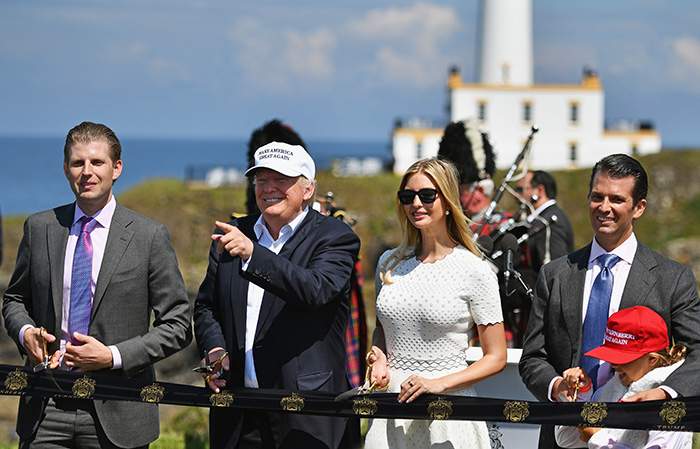
A family affair: Trump Turnberry is opened in 2016
But the Open may not come Mr Trump’s way. At least not while he’s president. No matter how good his courses, the Trump brand is just too controversial for some tournaments and their sponsors. Take the Scottish Open championship, part of the European tour, for example.
It’s sponsored by Aberdeen Standard Investments. Its joint chief executive, Martin Gilbert, is a friend of the president and attended his inauguration. Mr Gilbert has expressed a desire to take the Scottish Open back to Aberdeenshire - but not to Mr Trump’s Menie resort.
“Trump’s is a great course but there are issues if we went there - and the worst thing would be if he came,” Mr Gilbert said in 2017. “Politics aside, Trump would be an ideal venue but you can’t put politics aside.”
We are in uncharted territory with the president’s family owning golf courses”
The Royal and Ancient (R&A) - the governing body that decides where the Open is played - has a greater dilemma. They already have Turnberry on the official rota of venues that host the tournament.
The Open was last at Turnberry in 2009, before Mr Trump took over, and would be expected to secure a return visit fairly soon. The next available year is 2022. But the decision will likely have to be taken while he is still in office.
“For all of us in the game, we are in uncharted territory here with the president’s family owning golf courses,” says R&A chief executive Martin Slumbers. “We’re all learning as we go.”
It’s possible that Turnberry will remain an Open venue without actually hosting it again until Mr Trump leaves the White House. That would certainly avoid the inevitable howl of protest and a potential boycott.
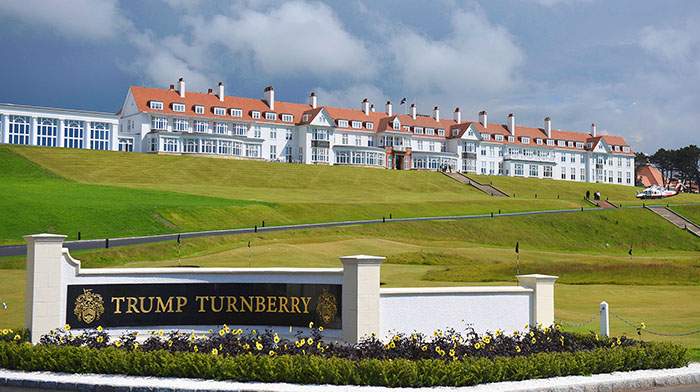
Despite all the rebuffs he’s had in Scotland, Mr Trump is not one who gives up without a fight. As Malone puts it: “We absolutely will host majors. That’s why it was designed.”
The Menie development was also intended - according to Mr Trump - as a tribute to his Scottish mother, Mary-Anne MacLeod, who was born and raised on the isle of Lewis. Mr Trump’s hotel here, a restored baronial mansion from the early 19th Century, is named MacLeod House in her memory.
Further development of the resort may be required if it is to host big tournaments. The Trump Organization has already submitted a planning application for a second golf course.
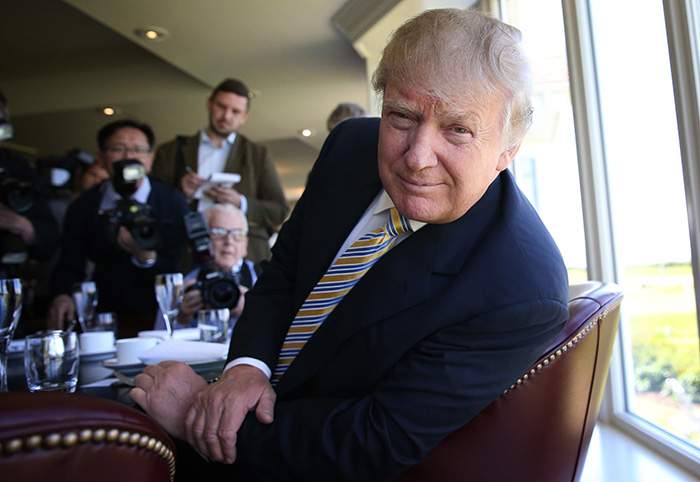
And despite the wind turbines President Trump loves to hate now being in place, the company he founded has also drawn up plans to build a resort village in Aberdeenshire.
It includes a mixture of 550 residential homes and holiday accommodation, but no big hotel. The scene is set for a fresh fight with the planning authorities.
The political atmosphere has changed a great deal since Donald Trump was being courted by successive Scottish governments in the mid-2000s. Politicians are much warier of him and his business empire now and would not want to be seen to give special favours.
Yet if they want more Trump investment it seems further compromise will be required. A formal planning application was expected to be lodged in Aberdeenshire in early 2018. It has yet to materialise. And who knows when it will.
That is as unpredictable as President Trump himself.
And despite the wind turbines Mr Trump loves to hate now being in place, the company he founded has also drawn up plans to build a resort village in Aberdeenshire.
It includes a mixture of 550 residential homes and holiday accommodation, but no big hotel. The scene is set for a fresh fight with the planning authorities.
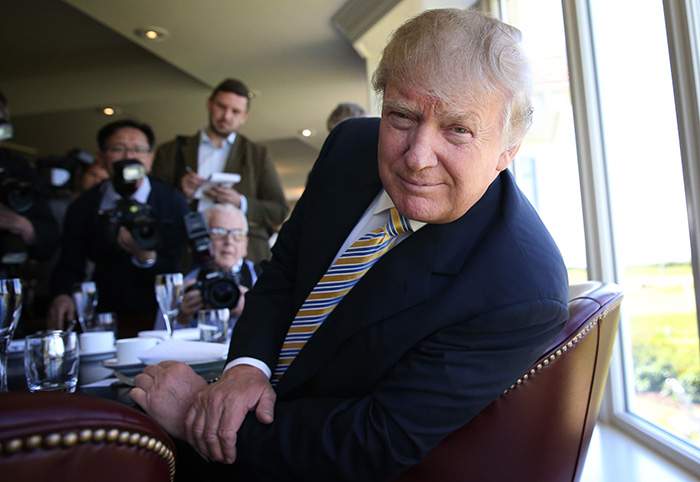
The political atmosphere has changed a great deal since Mr Trump was being courted by successive Scottish governments in the mid-2000s. Politicians are much warier of him and his business empire now and would not want to be seen to give special favours.
Yet if they want more Trump investment it seems further compromise will be required. A formal planning application was expected to be lodged in Aberdeenshire in early 2018. It has yet to materialise. And who knows when it will.
That is as unpredictable as President Trump himself.
